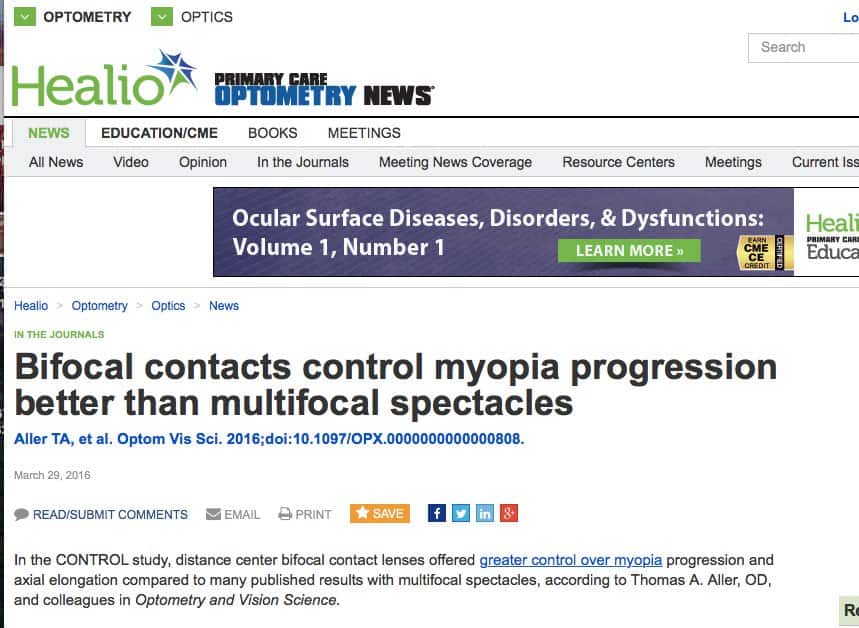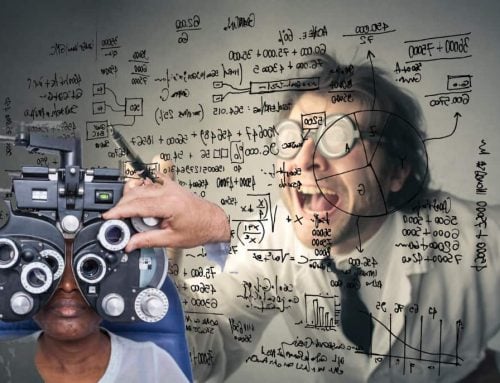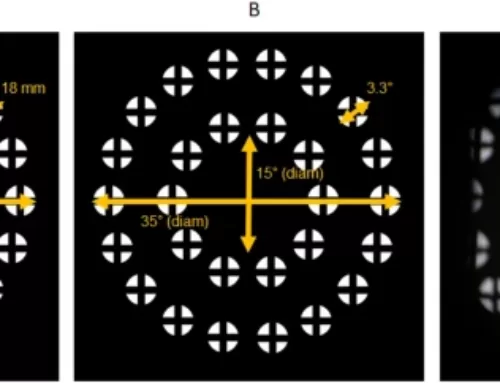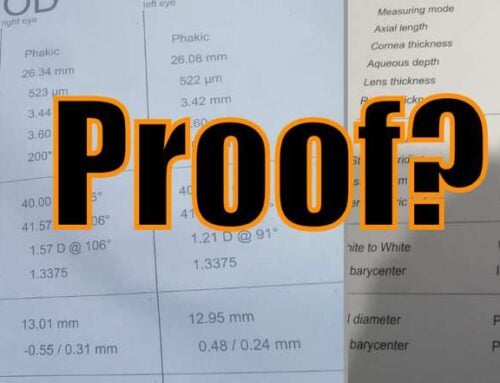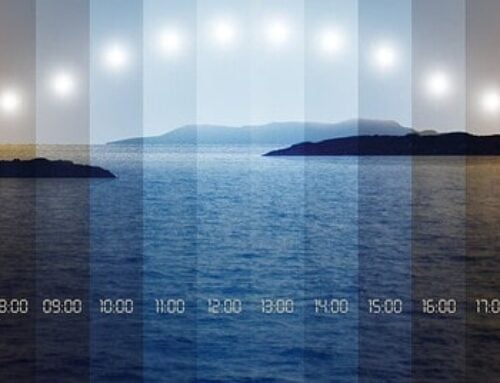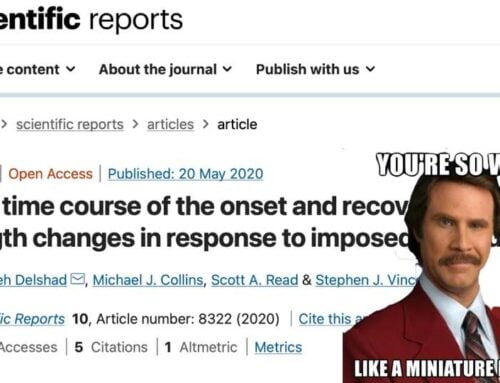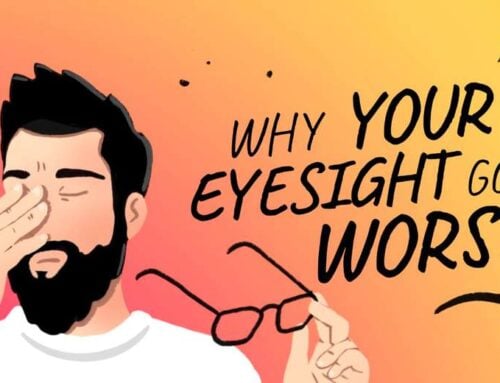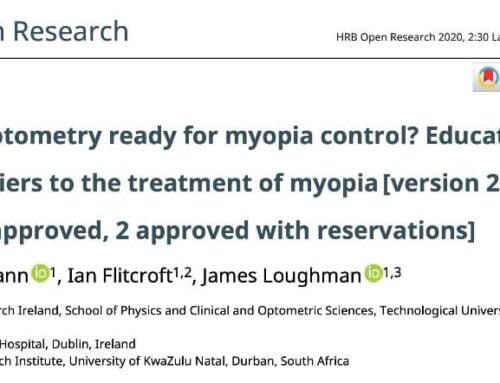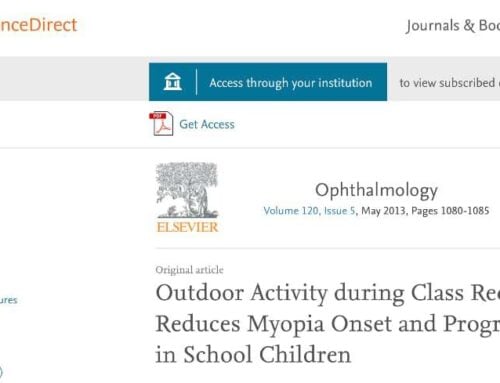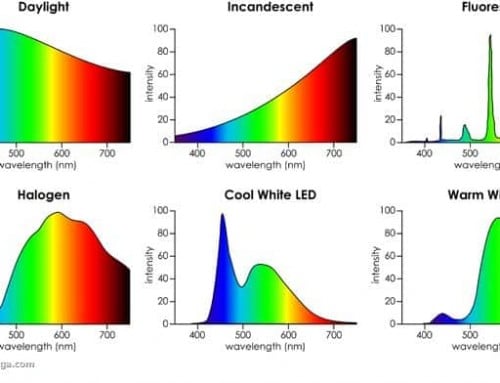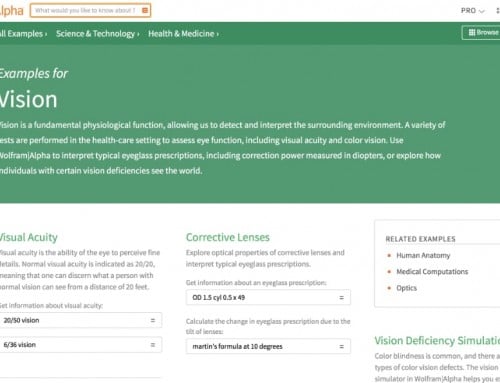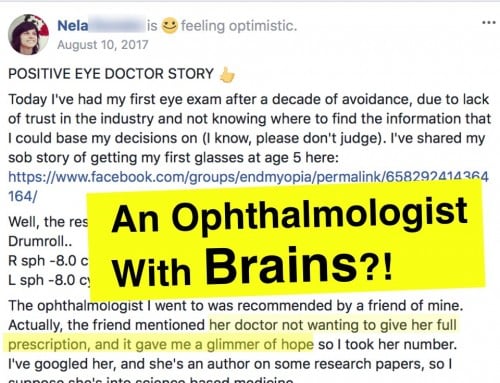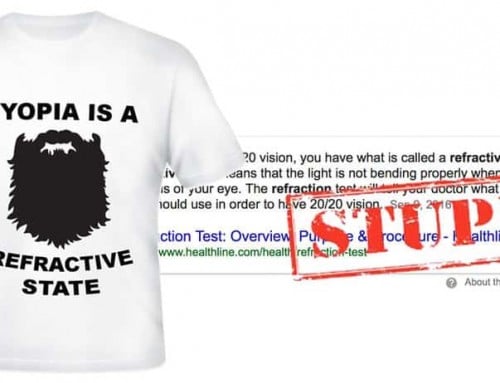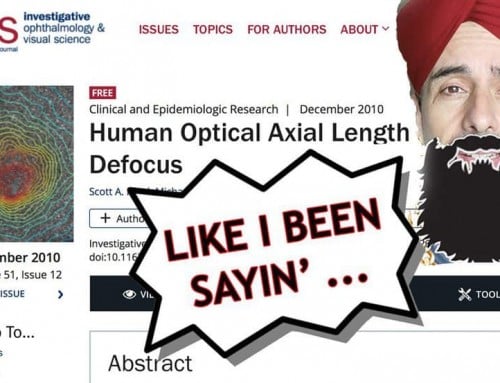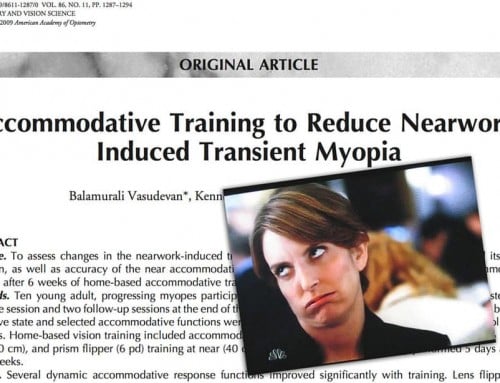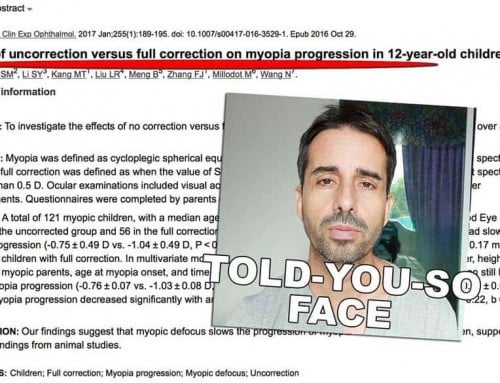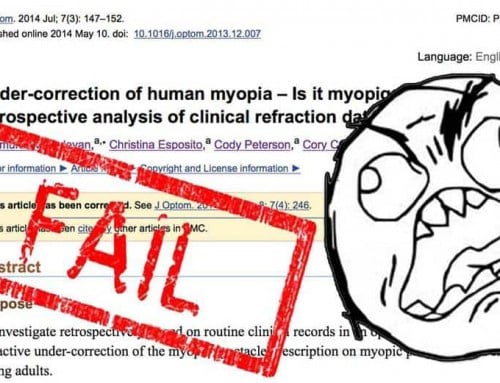Bi-focal contact lens study: 72% reduction in myopia progression. 80% reduction in the rate of axial elongation.
YES. More mainstream science proving that myopia isn’t the uncontrollable lens-selling, profit pooping monster, which the optic shop sales minion will describe to you in all sort of lurid detail.
Feast your eyes upon this one:
Bifocal contacts control myopia progression better than multifocal spectacles
In the CONTROL study, distance center bifocal contact lenses offered greater control over myopia progression and axial elongation compared to many published results with multifocal spectacles, according to Thomas A. Aller, OD, and colleagues in Optometry and Vision Science.
The Control of Nearsightedness-Trial of Lenses (CONTROL) double-masked design involved two treatment groups of myopes between 8 and 18 years old wearing either distance center (alternating five-ring) bifocal soft contact lenses (Vistakon Acuvue Bifocal, Johnson & Johnson) or single-vision soft contact lenses (Vistakon Acuvue 2). Participants wore lenses on a daily wear basis for 12 months, with a 2-week replacement schedule, according to researchers. Of the 86 patients recruited for the study, 78 completed all aspects.
Prior to the study, all subjects had low to moderate myopia with mean equivalent spherical refractive errors ranging from -0.75 D to -5.82 D and astigmatism ranging from 0 D to -1.00 D. Mean refractive error was -2.69 ± 1.40 D. Axial lengths ranged from 22.58 mm to 26.41 mm, according to the study.
All group differences found during the 12-month CONTROL trial were statistically significant. The bifocal soft contact lenses (BFSCL) significantly slowed myopia with differences between the treatment groups after 6 months. After 12 months, the patients wearing the single vision soft contact lenses (SVSCL) had progressed by -0.79 ± 0.43 D compared with -0.22 ± 0.34 D for the BFSCL group. BFSCL axial length changes were 0.24 ± 0.17 mm and 0.05 ± 0.14 mm for SVSCL.
Researchers found an overall 72% reduction in myopia progression, based on cyclopegic autorefraction, in addition to an 80% reduction in the rate of axial elongation.
“The distance center bifocal contact lenses tested in this study achieved greater control over myopia progression and axial elongation (>70%) compared with most published results with multifocal spectacles,” the authors concluded. – by Abigail Sutton
Disclosure: Aller owns stock in Johnson & Johnson. He also received a patent on the use of bifocal contact lenses for myopia progression control and he is a coauthor of several other patents in the area of myopia control. All remaining authors reported no financial disclosures.
That last part, you just have to giggle (or smirk, if you’re the cool type).
Like I keep saying … yes, modern optometry science full well knows what causes myopia, and how myopia progression could be stopped (perhaps even reversed). Unless there is a patent to be set up though, a branded product to be sold, you’ll never, ever hear about it.
You can use studies like the one above to clearly refute the nonsense you get in mainstream practices, that myopia is some unknown illness. And knowing Jakey and @endmyopia, you can see through the rest of the story too. Now you can either wait for them to find products to sell you to actually stop your myopia progression, or just not spend money on more prescription complexity, and get your eyes back the natural way.
Luckily for you, your darling eye guru isn’t profit motivated. If I was, there’d be a whole slew of patents flying about, for all manner of Steiner-Myopia-Control products.
Cheers!
-Jake

